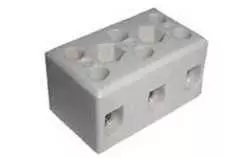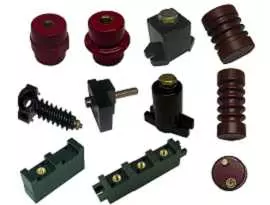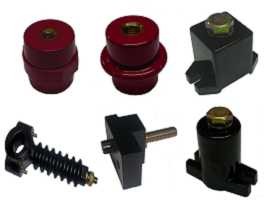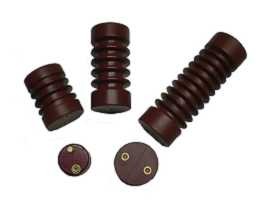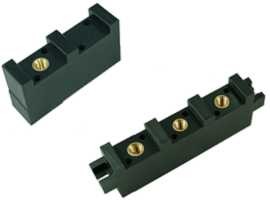Insulators & Busbar Support
SHINING E&E is a great busbar support insulator manufacturer, it has 40 years of experience in offering products and ensuring it meets each customer's requirements.
Our main products include various Insulator and Busbar Support, such as Low Voltage Insulator, High Voltage Insulator, Plastic Insulator, Resin Insulator, Epoxy Insulator, Ceramic Insulator, Porcelain Insulator, 1.2KV Insulator, 6.6KV Insulator, 11KV Insulator, and Busbar Support.
Related Insulator Introductions and Applications
- Plastic Insulator: To separate electrical conductors and to prevent the flow of electricity through unwanted pathways.
- Resin Insulator : It is used for electrical insulation in a variety of applications. Resin insulators offer excellent electrical properties and are resistant to high temperatures, chemicals, and moisture.
- Epoxy Insulator: It can be used for electrical insulation in transformers, switchgear, and other high voltage applications. Epoxy insulators offer excellent insulation properties and are resistant to heat, chemicals, and moisture.
- Ceramic Insulator: It can be used in high voltage applications. Ceramic insulators are strong, durable, and offer excellent electrical insulation properties.
- Porcelain Insulator: It is used to provide insulation in high voltage applications such as power transmission and distribution. Porcelain insulators are strong, durable, and offer excellent electrical insulation properties.
A perfect insulator does not exist, because even insulators contain small numbers of mobile charges (charge carriers) which can carry current. In addition, all insulators become electrically conductive when a sufficiently large voltage is applied that the electric field tears electrons away from the atoms.
This is known as the breakdown voltage of an insulator. Some materials such as glass, paper and Teflon, which have high resistivity, are very good electrical insulators. A much larger class of materials, even though they may have lower bulk resistivity, are still good enough to prevent significant current from flowing at normally used voltages, and thus are employed as insulation for electrical wiring and cables. Examples include rubber-like polymers and most plastics.


